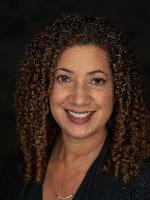

Abraham Lincoln Was a Woman and Other Fake News |
Participate and share : Interactive session
Adina Sullivan-Marlow
To prepare our students as critical-thinking, responsible citizens, we need to help them get to and recognize real information. After we understand the biases in the way of a common view of facts, we'll practice strategies to locate and analyze information before using those skills to develop classroom lessons.
| Audience: | Library media specialists, Teachers, Coaches |
| Skill level: | Beginner |
| Attendee devices: | Devices required |
| Attendee device specification: | Laptop: Chromebook, Mac Tablet: Android, iOS, Windows |
| Topic: | Library/media |
| ISTE Standards: | For Coaches: Digital Citizen Advocate
Citizen
Knowledge Constructor
|
According to the National Association for Media Literacy Education, media literacy is the ability to access, analyze, evaluate, create, and act using all forms of communication. Media literacy means anything from interpreting emojis to understanding underlying messages in online advertisements to producing viral video content and recognizing native advertising. With so many Russian bots, fake news postings, and data breaches, it’s more important than ever that students (and adults!) critically analyze information.
But this doesn’t have to mean boring lectures on using .edu websites, or looking for the author name on a webpage. It’s about digging deep into the logic of how the internet has shaped our perception of information, and how we can combat the algorithms that try to box us into one experience.
In this session, participants will understand how media messages shape our culture and society, and be able to advocate for the inclusion of comprehensive media literacy at all grade levels. They will also have a better understanding of the options, strategies, and available resources for searching for analyzing the credibility of news and other media. With this information, participants will develop lessons in authentic contexts to meet the needs of their students.
I have used this content in a K-12 district with positive ratings and additional teachers requesting to participate in future sessions.
In addition, this session was previously presented at regional and state-wide conferences to very positive reviews. We continue to receive positive comments about the quality and applicability of the content.
Presentation Outline:
(10 min) Introduction and context including the Stanford Study about lack of media literacy amongst students
(20 min) Understanding bias and current skill level related to information analysis: Participants will evaluate themselves using one or more online tools.
(15 min) How Do We Find the Truth: After learning more about how search algorithms work, participants will explore and practice strategies for effective searching, as well as the use of Wikipedia as a search engine.
(20 min) Participants will learn and practice strategies for analysis of online information in text, graphic, and video form.
(15 min) Putting it All Together: Participants will remixing lesson designs to incorporate media literacy elements
(10 min) Share and closing
https://ed.stanford.edu/news/stanford-researchers-find-students-have-trouble-judging-credibility-information-online
https://www.ncbi.nlm.nih.gov/pmc/articles/PMC4291508/
https://www.commonsense.org/education/toolkit/news-and-media-literacy
https://newslit.org/educators
https://www.factcheck.org/2016/11/how-to-spot-fake-news
https://firstdraftnews.org
https://www.poynter.org/newsu

Education, equity, supporting others, travel, good food – these are the things that drive Adina Sullivan-Marlow, a teacher effectiveness and preparation coordinator for the San Diego County Office of Education, a Google Certified Innovator and Trainer, and a Leading Edge Certification Instructor. She also recently founded the nonprofit EquityEDU. With a focus on student needs, teacher goals and equity/accessibility, Sullivan-Marlow presents for K-12 district teachers as well as at local, regional and national conferences, including the CUE conference and ISTE Annual Conference & Expo.
DigCit VR Journey
Diversifying Teacher Professional Development With Interactive Choice Boards
Supercalifragilistic Lack of Accessibility is Pedagogically Atrocious